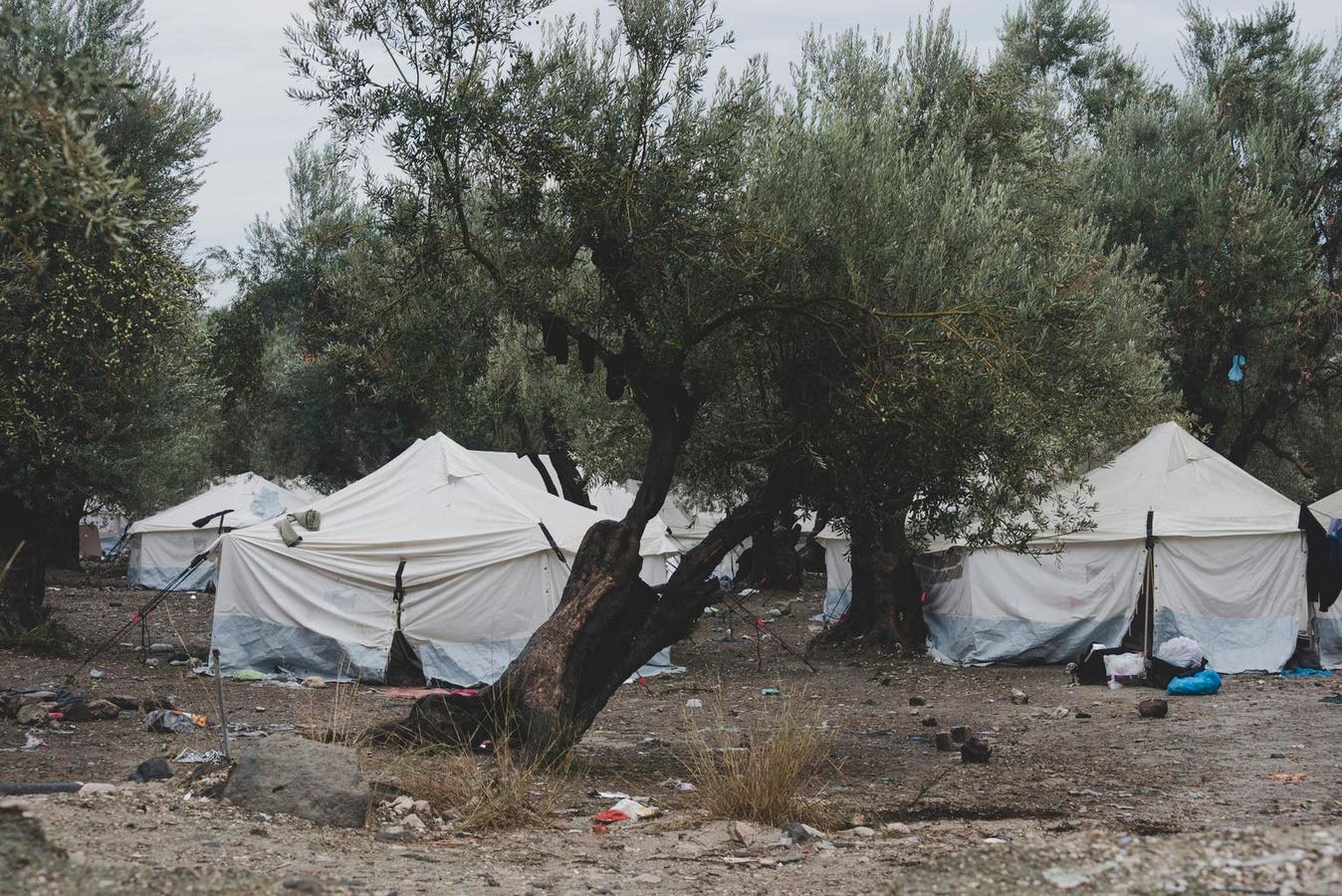Refugee tents in an olive grove at Kara Tepe camp near Mytilene, Lesbos, Greece.
getty
A long-simmering row is heating up again between Greece and Germany over the question of where refugees should be made to settle after receiving asylum in the EU. In the latest development, a Greek minister has said the country would not accept refugees returned from Germany, the week after a German court rules that refugees can indeed be sent back.
This all relates to what’s known as the Dublin Regulation, essentially a mechanism for assigning responsibility for individual asylum applications to one of the 27 EU member states, and more to the point tying that person to one country to prevent them moving around Europe. Under the Dublin rule – which has long played a role in the complicated politics of asylum and migration in Europe – an asylum seeker is typically tied to the first country they are registered in. If they move elsewhere to try to settle in a different EU country, in theory they can be moved back.
This poses a problem in practice, as almost all asylum seekers and irregular migrants tend to arrive in the EU via one of just a handful of countries, namely Italy and Greece (also previously Hungary). These countries have long complained that the system means they are forced to deal with a disproportionate share of the responsibility for processing and accommodating asylum seekers, an issue sharpened by the poor state of public finances in those countries compared to wealthier EU member states in the North.
The Dublin Regulation: A big part of refugees’ futures
During what became known as the ‘migrant crisis’ of 2015 and 2016, when over a million people sought shelter in Europe, Germany suspended returns under the Dublin agreement, which was hailed as an act of European solidarity. It was eventually reinstated, but over the years the issue of actually sending people back has been a tricky one. In 2021, a German regional court ruled that two asylum seekers could not be sent back to Italy, where they first arrived, as conditions in Italy might be prejudicial to their wellbeing. Lack of access to basic services, discrimination or even harassment or violence from local communities, and economic deprivation can all factor into such an assessment, and in real terms many people might face such problems if sent back to their country of first registration.
Cut to 2025, and a series of rulings in German courts have cleared the way for people to be sent back to Greece, despite objections raised by NGOs and civil society organizations about conditions for refugees there. And Greece is not happy about this either, raising the same objections as before, that it puts an ‘unfair burden’ on the country. Greece’s migration minister Makis Voridis has reportedly said the country will not accept returns from Germany.
“As long as there is no fair distribution of burdens within the European Union, Greece will not accept any returns,” said Voridis, according to Deutsche Welle.
What happens now is unclear, though the situation is likely to provoke further tension between Northern and Southern EU members states over refugees. On the other hand, policymakers across the EU who are calling for a system of pushing people to so-called ‘return hubs’ outside of the bloc’s territory may use this latest row between Germany and Greece to their own ends. Greece itself is lobbying for such a system, as are policymakers in Germany, so it may well be that this tension over Dublin returns may see them work more together in calling for ‘return hubs.’
